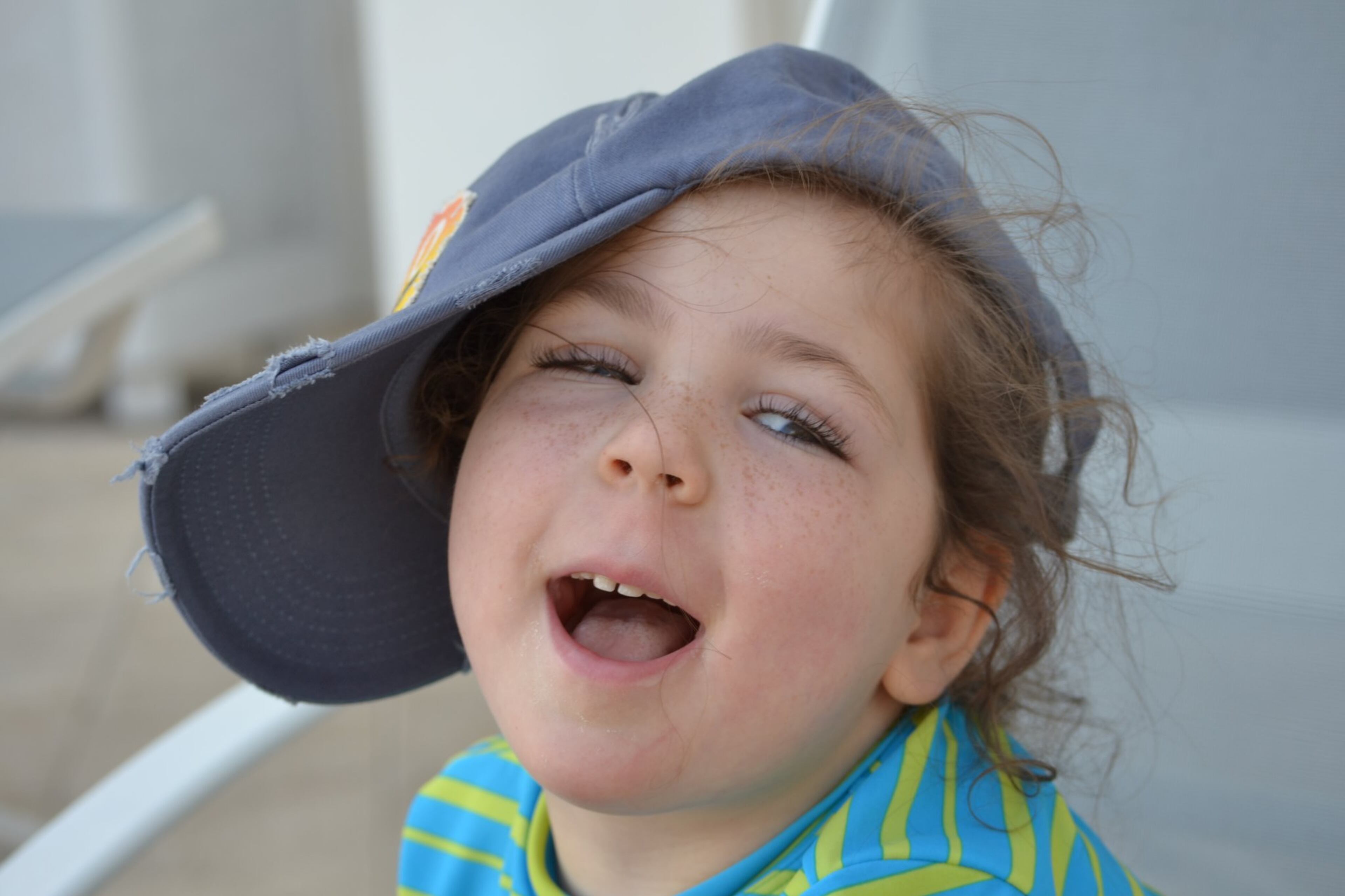Life with Gracie: DeKalb couple’s personal tragedy becomes crusade for genetic testing

In a third-floor office suite that is home to JScreen, a 44-year-old father talks about the moment he learned his daughter would never talk, never walk, would have the mental capacity of an 18-month-old and eventually go blind.
“We were devastated,” he said.
And surprised. Before they were married in 2004, Randy Gold and his wife, Caroline, made sure they were screened to determine whether they were at risk of passing on a genetic disease to their offspring, and now they were being told it hadn’t done a bit of good.
The Atlanta couple’s little girl Eden had Mucolipidosis Type IV or ML4, a neuro-degenerative disease of the nervous system that is common in Jews.
When the Golds were tested in 2004, they were screened for only a total of eight diseases. Lucky for the rest of us, that’s changed, and we have the Golds to thank.
Since Eden’s diagnosis that fateful day in 2009, the Golds have helped found a national nonprofit called JScreen, turning their personal tragedy into a crusade to spare others from passing on fatal or debilitating genetic disorders to their children.
JScreen, based at Emory University School of Medicine's Department of Human Genetics, makes genetic carrier screenings accessible across the United States and is led by Karen Arnovitz Grinzaid, Emory Genetics faculty and JScreen's executive director.
Soon after Eden was born in January 2008, the Golds, who’d already given birth to a healthy son, noticed their daughter wasn’t meeting developmental milestones such as sitting up and rolling over.
At about 15 months, they were referred to Emory for further genetic testing, and doctors soon boiled it down to ML4.
“Caroline and I thought Eden couldn’t have ML4 because we’d already been screened for Jewish genetic diseases,” Randy Gold said.
The couple quickly realized, however, the screening they’d had before getting married didn’t include many diseases for which they should have been tested and worse, there was no standard for which people should be screened.
Had there been, Gold said, “we would have learned that we were carriers and could have taken steps to make sure our child wouldn’t be affected by the disease.”

According to Grinzaid, just as sickle cell anemia is more common in African-Americans and cystic fibrosis is more common in Caucasians, people of Jewish descent are at increased risk for having children with a number of genetic diseases, including Tay-Sachs and ML4.
“We never thought we would have a child with a disease because we were healthy and our first child was healthy,” Randy Gold said. “We were devastated. Every dream we ever had for our daughter was shattered in an instant.”
Once they gathered themselves and realized they had another reality to contend with, the Golds began work to make sure their tragedy never happened to another family.
In 2010, with the help of the Emory Genetics team and support from the Marcus Foundation, a pilot program was created to offer affordable, accessible and comprehensive genetic screening. That effort has grown into a national program that’s now known as JScreen.
“For many, many people, knowledge is power,” Grinzaid said. “Our mission is not to tell at-risk couples not to get married or have children but give them information so that they can take advantage of reproductive options to help them have healthy children.”
That’s how the Golds had their third child, now a healthy 5-year-old girl. Knowing the risk of having another child affected with ML4, they went through a process called in vitro fertilization (IVF) with pre-implantation genetic diagnosis or PGD in which embryos are created outside the womb, the embryos are tested for the disease in question, and the healthy embryos are transferred to the mother’s womb.
Since its national launch in 2013, Grinzaid said, JScreen has helped thousands, testing people from every state across the country, offering services remotely.
That means once you register for a genetic screen kit at www.jscreen.org, JScreen will mail the kit to your home. All you have to do is spit in a tube and mail the saliva sample to the lab. A genetic counselor will then report the results either by phone or secure video conference.
For people with health insurance, JScreen’s program fee is $149 and includes the testing and follow-up genetic counseling. The self-pay price is $349.

JScreen is said to be the first organization in the world to have a comprehensive, affordable at-home carrier test to screen for diseases common in Jews of all backgrounds.
“Even though this is very relevant for the Jewish population, the JScreen test also covers genetic diseases common in other ethnic groups,” Grinzaid said.
Indeed, JScreen just expanded its screening panel from 100 to over 200 diseases.
The disease the Golds passed on to Eden wasn’t identified until 1974. The screen to determine if one carried the ML4 gene became available in 2001, three years before the Golds were screened.
“We say everyone is a carrier for a number of genetic diseases but we don’t know what they are,” Grinzaid said. “There are two ways to find out. Number one, you could have an affected child like Randy and Caroline. The second way is to have carrier testing done. That’s why we started the program, so people won’t end up in their situation.”
Today, Eden is 9. She doesn’t walk. She doesn’t talk. She has the cognitive ability of an 18-month-old. She’s already lost a significant amount of her eyesight. Eden can’t care for herself, dress herself, feed herself or use the toilet by herself. Her parents, siblings and caretakers must help.
But every single day, she works hard to do what she can on her own. She is constantly on, smiling, giving light to every room she enters.
Even so, it’s hard to forget the right test could’ve prevented her disease.
If you plan to have children, see JScreen first.


